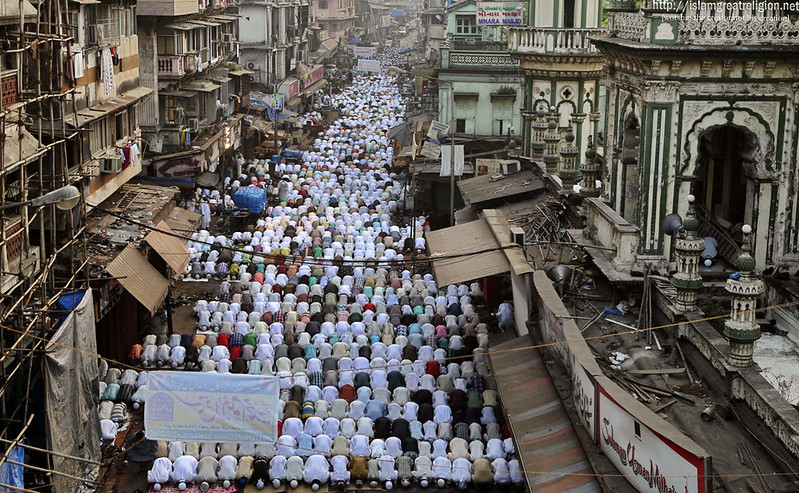Hari Raya Haji (Eid al-Adha)
Malaysia’s Festival of Prayer, Sacrifice, and Sharing
2026/05/26 - 2026/05/27
Every year, Malaysia’s Hari Raya Haji (Eid al-Adha) fills cities and villages with the spirit of prayer, feasting, and warm community bonds. Celebrated in mosques, homes, and public squares, this festival is a deeply meaningful time for Muslims to reflect on faith, family, and charity. For cultural explorers, food lovers, and travelers seeking authentic local life, Hari Raya Haji is a multi-sensory celebration of Malaysia’s traditions and hospitality.
The festival begins on the 10th day of Dzulhijjah in the Islamic calendar and lasts two to three days. The morning echoes with Quranic prayers, the air is rich with the aroma of spiced meats, and families gather in vibrant traditional attire-every detail radiates warmth and gratitude. Non-Muslims are often welcomed to join the festivities, making Hari Raya Haji an inclusive celebration unique to multicultural Malaysia.
Main Attractions
The Qurban Ritual and Morning Prayers
At the heart of Hari Raya Haji is the qurban, the ritual sacrifice of livestock such as cows, goats, or sheep. Early in the morning, worshippers dressed in colorful baju melayu or baju kurung (traditional Malay attire) gather at mosques for special prayers. Afterward, animals are sacrificed to the chant of “Allahu Akbar” (“God is Great”), and the meat is distributed to family, neighbors, and especially those in need. This act of sharing and charity is the festival’s core.
Throughout the day, homes and streets are filled with laughter, the savory aroma of grilling meat, and the sound of festive songs. In cities like Kuala Lumpur, Penang, and Malacca, mosques and public spaces are decorated with lanterns, ketupat (woven rice pouches), and lights, creating a vibrant atmosphere that lasts well into the night.
Traditional Costumes and Decorations
Hari Raya Haji is a visual delight. Men wear long-sleeved baju melayu with sarong and songkok hats, while women dress in baju kurung or kebaya with colorful scarves and embroidery. Homes and mosques are adorned with lanterns, ketupat, and green packets (festive envelopes), which are especially popular with children.
Feasting and Togetherness
The festival table is a true feast. Dishes made from qurban meat-such as rendang (slow-cooked beef or lamb in coconut and spices), satay, ketupat, and dodol (sticky sweet treats)-are served alongside colorful kuih (traditional cakes) and spicy sambal. The scent of lemongrass, coconut, and grilled meat fills the air, and sharing these flavors with family and friends is a highlight of the celebration.
Cultural and Historical Background
Hari Raya Haji commemorates the story of Prophet Ibrahim (Abraham), who was willing to sacrifice his son Ismail in obedience to God, only for God’s mercy to provide a ram as a substitute. The festival reminds Muslims of faith, obedience, and compassion, and is one of the most important Islamic holidays worldwide.
In Malaysia, where over 70% of the population is Muslim, Hari Raya Haji is a national public holiday. Qurban rituals are organized by mosques and local communities, with preparations beginning weeks in advance. The festival is not only a religious observance but also a time for family reunions, charity, and multicultural exchange.
Participant Voices
“Hari Raya Haji is when our whole family comes together. We wake up early, put on our baju melayu, go to the mosque, help with the qurban, and share rendang and ketupat with our neighbors. It’s a day full of gratitude and connection.”
Fun Facts
- Hari Raya Haji is also called Hari Raya Korban or Eid al-Adha and is the second biggest Islamic festival after Hari Raya Aidilfitri.
- Green packets, similar to Chinese red envelopes, are given out, decorated with Islamic motifs and prayers.
- It is a public holiday nationwide, and many non-Muslims join in the festivities.
- “Selamat Hari Raya” is the customary greeting during the festival.
- Those participating in qurban often refrain from cutting their hair or nails for several days beforehand as a sign of devotion.
Festival Dates
Hari Raya Haji is celebrated for two to three days starting on the 10th day of Dzulhijjah, the final month of the Islamic calendar, at mosques, homes, and public spaces across Malaysia. Experience this festival of prayer, generosity, and traditional flavors for yourself.
The event schedule is subject to change. Please check the official website for the most up-to-date information.
Information
| Name | Hari Raya Haji (Eid al-Adha) |
| Country | Malaysia |
| Area | Nationwide, |
| Date | 2026/05/26 - 2026/05/27 |
| Link |
Upcoming Festivals
Kukeri(Surva) Bulgaria
Bulgaria’s Festival of Spirits, Fire, and Bells That Drives Away Winter
2026/01/22Dinagyang Philippines
Iloilo’s Thunderous Festival of Faith, Tradition, and Dance
2026/01/22The Northern Lights Festival (Nordlysfestivalen) Norway
A Tromsø Miracle: Music and Aurora Dancing in the Arctic Night
2026/01/25Carnavales de Ituren y Zubieta Spain
Ancient Echoes and the Festival that Awakens Spring in the Basque Mountains
2026/01/26Up Helly Aa United Kingdom
A Night When Fire and Viking Pride Blaze in Shetland
2026/01/29Winterlude Canada
A Wonderland of Ice, Light, and Smiles in Canada’s Capital Region
2026/01/30Carnival of Viareggio (Carnevale de Viareggio) Italy
A Spectacular Parade of Giant Papier-Mâché Masterpieces
2026/01/30Fiesta de la Candelaria(Virgin of Candelaria) Peru
A Grand Dance Festival of Faith and Folklore Echoing on the Shores of Lake Titicaca
2026/01/31Thaipusam Malaysia
A Pilgrimage of Prayer and Penance Illuminates Batu Caves
2026/01/31Jaisalmer Desert Festival India
When Rajasthan’s Golden Dunes Dazzle with Color and Culture
